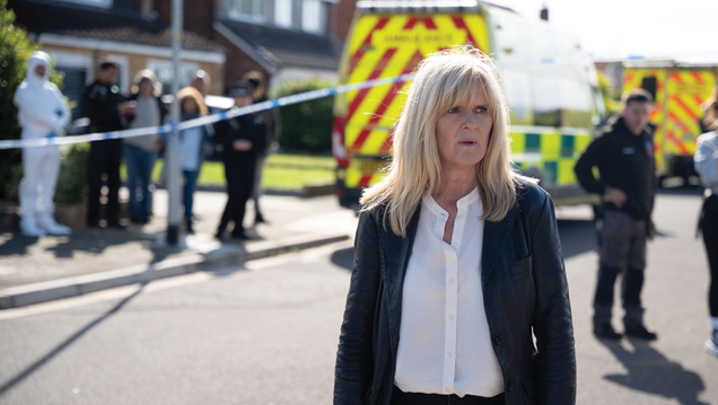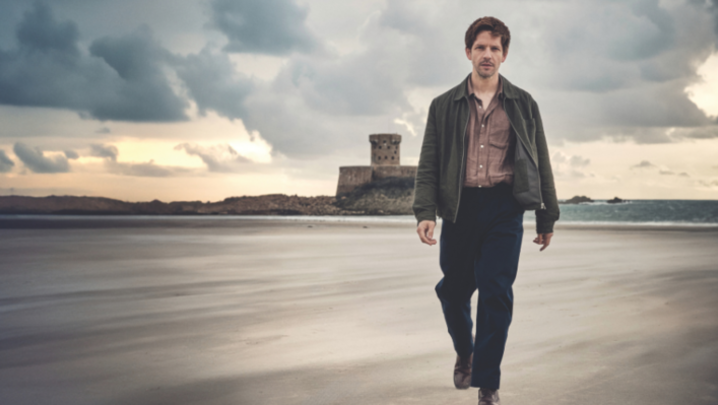A standout soundtrack can define a TV show, hears Pippa Shawley
When California-based HBO drama Big Little Lies hit screens earlier this year, it wasn’t the A-list cast or the aspirational architecture that got people talking.
The standout star of the series was its soundtrack, developed by director Jean-Marc Vallée and music supervisor Sue Jacobs.
The soul-inflected soundtrack is central to the series. It begins with Michael Kiwanuka’s Cold Little Heart playing over views of the Pacific Coast Highway and climaxes in the series finale, where Elvis’s back catalogue is weaponised in the power struggle between parents.
Vallée, who told Variety that he was “a frustrated DJ who’s making films”, uses music as a vehicle for building characters. He supplies playlists to his actors to help them to explore their character’s psyche.
In Big Little Lies, the partnership with music seeps into the series, reflecting the moods of the protagonists. The anthem for rape victim Jane (Shailene Woodley) is Martha Wainwright’s vitriolic Bloody Mother Fucking Asshole.
Internet memes have taken flight about the scene where uptight Madeline (Reese Witherspoon) asks her ex-husband’s free-spirited partner Bonnie (Zoë Kravitz) whether the song she’s playing is by Adele. In fact, it’s Sade’s Cherish the Day and serves to emphasise the difference between the two women.
It is no surprise that the carefully curated soundtrack, featuring everyone from Frank Ocean and Alabama Shakes to Jefferson Airplane and The Temptations, has made an impact in the charts and on streaming services.
The official soundtrack album, which is limited to 14 tracks, peaked at number 7 and 4 in the UK and US soundtrack charts, respectively.
One unofficial Spotify playlist featuring all the songs used in the show has more than 200,000 followers.
With dozens of dramas vying for attention, this is another way for a series to find viewers, but we shouldn’t expect every show to deliver a killer soundtrack.
“People look at [Big Little Lies] as a benchmark,” says music supervisor Matt Biffa, who has worked across television and film productions, including Fresh Meat, Lovesick and Harry Potter. “We’re expected to pull that kind of thing off but with a quarter of the budget [in the UK].”
Trying to obtain clearance for one song by an up-and-coming US artist can easily wipe out half of the total budget for music. Music supervisors have to be creative about the music they source, while managing the expectations of directors and production teams.
Ideally, a music supervisor should come on board when scripts are being developed.
“You’ve got lots of time to think about the characters, go through the scripts, and gently tell everybody that it is not going to be possible to clear the Led Zeppelin song that’s written in,” explains Biffa.
Until recently, music supervisors tended to use music covered by a blanket licence agreement, paid for by a broadcaster or a large independent.
This meant that licences didn’t need to be negotiated every time someone wanted to use a song.
That is changing now, says Biffa, as co-productions have become TV drama’s default position. Consequently, songs must be cleared directly with artists and publishers. That can add a lot of pressure and force music departments to be more resourceful.
“Necessity is the mother of invention,” says Biffa. When budgets won’t allow for chart toppers or old standards, music supervisors look to less-established artists with lower fees.
This approach has led to several shows gaining a reputation for breaking new talent, as digital technologies such as Shazam allow viewers to identify and buy tracks during transmission.
“Music is playing an increasingly important role within TV, in particular drama, but across [all] the genres,” says music supervisor and president of the UK & European Guild of Music Supervisors Iain Cooke.
“Broadcasters and production companies are also acknowledging how important a role it can play, particularly when it comes to creating a buzz around a series,” he adds.
Social-media interest in a show’s soundtrack can drive more people to tune in.
Cooke’s guild was set up earlier this year to promote the role of music supervisors, and to promote best practice in the field. The job involves what Cooke calls a “unique skillset”, requiring creative and talented people who can source the right music, but also be “hyper-organised and have almost paralegal skills” when it comes to negotiating licences.
This symbiotic relationship between the television and music industries means that music supervisors can find themselves wearing several hats.
“We’re a little bit like A+R people in that we’re coming across these new artists and then deciding that some of them are good enough to go up on this particular platform. From there, their careers can sometimes flourish if they’re lucky,” says Biffa.
Teen drama The OC was a pioneer in this area. It brought underexposed indie bands to a more mainstream audience.
Early scripts, featuring music from creator Josh Schwartz’s iPod, used the relative obscurity of bands such as Death Cab for Cutie and The Killers to stress protagonist Seth Cohen’s geeky otherness. More established acts got in on the publicity later, with The Beastie Boys and Beck debuting new music on The OC.
In total, six “mixes” from the show were released, with many of them peaking in the Billboard 200 charts.
On this side of the pond, Made in Chelsea has become a source of must-stream playlists. Its title music brought French electronic group M83 to popular attention. Since then, it’s gone on to showcase other under-the-radar musicians, including Peace and Wolf Alice.
To celebrate the show’s relationship with upcoming bands, in 2013, E4 held a series of gigs, wittily called Played in Chelsea, featuring artists who had appeared on Made in Chelsea soundtracks.
While less-established artists fit well in youth-skewing productions, big US dramas have made adult audiences here more receptive to less familiar tracks.
“Shows such as Breaking Bad have opened audiences up to unknown, or obscure, material,” says Biffa. “That does make things more interesting for a music supervisor. We’re not just fulfilling the same function as a Now [That’s What I Call Music] album.”
Cooke agrees: “The advent of HBO set the benchmark so high with its use of music, it has really made production companies over here re-examine their music policies and budgets.”
Music supervisors carefully plan their budgets, prioritising tracks used in the credits, as well as featured moments and montages where the music is really noticed. Those on a tight budget, suggests Cooke, have to “box clever with more background moments”.
This can involve using music from self-produced artists or the output of music libraries, such as Audio Network, to make savings to support investment elsewhere.
Where songs covered by the blanket agreement would once have been replaced for international markets, licences are being agreed individually so that they can travel abroad.
“Production companies, in particular, don’t want to deliver what would be deemed a substandard version, particularly to the US market,” Cooke continues.
With the move away from blanket agreements, music supervisors are gaining greater responsibilities, something that the industry is keen to talk up. This year, the Emmy awards will recognise music supervisors for the first time.
Meanwhile, the UK & European Guild of Music Supervisors is hoping to engage and nurture a new generation. It is working with directors, writers and producers to enhance their understanding of the challenges and possibilities that go with the role.
For audiences, the growing influence of the music department can only be a good thing. Shows such as Breaking Bad and Big Little Lies not only offer visual entertainment, but also serve up ready-made playlists for road trips through New Mexico or down Route 101.







